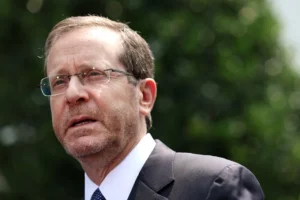
President Joe Biden ended his reelection bid and endorsed Vice President Kamala Harris to succeed him on Sunday.
“It has been the greatest honor of my life to serve as your President,” Biden wrote in a letter posted to his official account on X. “And while it has been my intention to seek reelection, I believe it is in the best interest of my party and the country for me to stand down and to focus solely on fulfilling my duties as President for the remainder of my term.”

Biden said he will speak to the nation later this week in more detail.
In a follow-up post, Biden praised Harris and urged Democrats to unite behind her. “My very first decision as the party nominee in 2020 was to pick Kamala Harris as my Vice President,” Biden wrote. “And it’s been the best decision I’ve made. Today I want to offer my full support and endorsement for Kamala to be the nominee of our party this year.”
Harris’s Response and Immediate Actions
Harris, who was informed of Biden’s decision Sunday, said in a statement that she was “honored to have the President’s endorsement and my intention is to earn and win this nomination.” She is spending the day reaching out to lawmakers, outside organizations, and donors, and was slated to make up to 200 calls on Sunday alone, a top Democratic source close to her told CNN.
Many prominent Democrats, including former President Bill Clinton and former Secretary of State Hillary Clinton, quickly came out in support of Harris, although some who released statements reacting to Biden’s decision did not mention the vice president, including former President Barack Obama.

Reactions Within the Party
“I have extraordinary confidence that the leaders of our party will be able to create a process from which an outstanding nominee emerges,” Obama said in a statement that kept the focus on Biden.
An adviser said Obama is taking the same approach as he did in the 2020 Democratic primary, watching closely with the intent of being able to help unify the party when a nominee is chosen – whether it is Harris or someone else.
Others explicitly called for an open process to determine who should replace Biden at the top of the ticket.
Official Campaign Changes
Later Sunday, the Biden-Harris campaign formally amended its filings with the Federal Election Commission to rename its principal committee “Harris for President.” However, Harris’s ascension to the top of the ticket isn’t a certainty. The nominee will now be determined by the delegates to the Democratic National Convention. While Biden won an overwhelming majority of the delegates during the primary process earlier this year, they are now free to choose a candidate of their choice and he cannot simply transfer them to Harris.

Republican Reactions
Biden’s departure capped off weeks of concern about the 81-year-old president’s stamina and mental capabilities and skepticism of his ability to effectively campaign against former President Donald Trump and govern the country for another four years. While Biden said he is committed to serving out the remainder of his term, his decision sparked immediate calls from Republicans for him to step down as president. Trump said Biden “is not fit to serve” in a post on Truth Social.
In a phone call with CNN after Biden’s announcement, Trump said Biden would go down “as the single worst president by far in the history of our country” and said he thought Harris would be easier to defeat than Biden.

Other leading Republicans, including House Speaker Mike Johnson, called on Biden to “resign the office immediately.”
“If Joe Biden is not fit to run for President, he is not fit to serve as President,” Johnson said in a statement.
Historical Context and Internal Deliberations
It’s the first time a one-term US president has dropped out of a reelection run in decades and recalls President Lyndon Johnson’s decision not to seek a second full term in 1968 – though Biden’s decision comes months later in the campaign than Johnson’s. It’s also the latest shocking development in a highly charged political campaign that has included an attempt on Trump’s life.
But not even the attempted assassination on Trump and its tumultuous effect on the race would pause the drain of support Biden was facing among congressional Democrats who became increasingly convinced that a wipeout in November would also drown their down-ballot contests as well.

Biden’s final decision to leave the race was reached in the last 48 hours, a senior campaign adviser said, as he consulted family and top advisers by telephone. He did not have a final in-person meeting with his top campaign or White House advisers as he recovered from Covid-19 at his beach home in Rehoboth Beach, Delaware.
As his decision neared its end, First Lady Jill Biden remained her husband’s most ardent supporter. “Down to the last hours of the decision only he could make, she was supportive of whatever road he chose,” Jill Biden’s communications director Elizabeth Alexander said in a statement to CNN.
The End of a Storied Career
The president’s exit from the race sets the stage for the conclusion to a political career that has spanned a half-century, one that saw Biden enter as one of the youngest senators in US history and exit as its oldest president.
Age and questions about the president’s mental faculties had been Biden’s biggest political liability since he first ran against Trump in 2020. Biden’s disastrous performance at a June 27 CNN debate – during which the president spoke softly, had a glazed-over look, and, at one point, appeared to lose his train of thought mid-sentence while his opponent delivered an animated, while mainly fact-free performance – brought those concerns to the forefront of the political conversation and ultimately doomed his reelection push.
Biden’s campaign had asked for the June debate in the hopes that it would force voters to tune into the race – and what Biden had said was at stake – earlier than usual. But that strategy appeared to backfire as the president solidified what had been the most persistent concern about his candidacy.

Debate Fallout
The president’s performance shocked his donors, closest allies, and the 50 million Americans who saw Biden stumble throughout the 90-minute debate — the most extensive exposure to an unscripted Biden since the last round of general-election debates four years ago. It left the White House and Biden campaign in a frenzied scramble to explain away his condition – at first, blaming it on a cold, before days later saying the president had been jet lagged by his international travel that wrapped up about 12 days prior to the debate.
The president’s surrogates and campaign officials sought to soothe Democratic anxieties, hurriedly calling meetings with donors and top supporters to assure them that Biden’s performance was the product of one bad night and ask them to consider it in the context of his three-and-a-half-year presidency.

The president himself recognized how poorly the night had gone almost immediately; at a campaign rally the next day, he sought to promote an animated and energized image that had largely been absent from the debate stage.
“I don’t walk as easy as I used to,” Biden said. “I don’t speak as smoothly as I used to. I don’t debate as well as I used to. But I know what I do know: I know how to tell the truth. I know right from wrong. I know how to do this job. I know how to get things done.”
But the damage had already been done.
Democratic Party Reactions
By the Monday after the debate, murmurs about replacing Biden on the ticket had grown into a full public conversation. The mood in the White House and at Biden’s campaign headquarters in Wilmington had turned sour. Biden, seeking to assert his control over his campaign and the presidency, delivered brief remarks that evening on the Supreme Court’s immunity decision earlier that day, asking voters to “dissent” in a rare political overture from the White House.
The next day, Rep. Lloyd Doggett of Texas became the first member of Congress from Biden’s own party to ask him to drop out. The fractures in Biden’s support have grown steadily wider every day since. By the time Biden exited the race, dozens of lawmakers had asked him to bow out.
So had major donors. Actor George Clooney, who has known Biden for years and was one of Hollywood’s biggest boosters of the president, said in a July 10 New York Times opinion piece that Democrats “are not going to win in November with this president” and called for the party to pick a new nominee.

Biden was initially defiant that he would remain in the race. But as the defections in his base of support continued, and leading Democrats in Congress continued to have difficult conversations with the president about his odds against Trump and the damaging effect he might have on down-ballot Democrats in competitive races, Biden opened himself up more to the idea of dropping out of the race.
Biden’s Evolution and Final Decision
In an interview with ABC’s George Stephanopoulos on July 5, Biden laughed off questions about his political future and said only the “Lord Almighty” could convince him to drop from the race.
Days later, Stephanopoulos candidly told a passerby that he also didn’t think Biden could serve another four years.
Biden told reporters at a NATO news conference he would drop out if polls showed he could not win. About a week later, he said he would reevaluate whether to stay in if he had “some medical condition that emerged” and doctors told him that would be an issue. The next day, the White House announced that Biden had Covid-19.

Impact of Trump’s Assassination Attempt
The attempt on Trump’s life on July 13 briefly stemmed the flow of congressional Democrats calling for Biden to drop out and pulled the national attention away from his faltering presidential campaign. But the reprieve didn’t last long. California Rep. Adam Schiff on July 17 became the first House Democrat to call on Biden to step down since the assassination attempt, and more followed in the ensuing days.
Biden’s evolution on his future as the party’s nominee tracked closely with efforts among his biggest allies to convince him the path to victory was narrow. Former House Speaker Nancy Pelosi told Biden weeks after his debate that polls showed he could not win.
A senior Democratic adviser told CNN the president was becoming “receptive” to conversations about him stepping aside: “He’s gone from saying, ‘Kamala can’t win,’ to ‘Do you think Kamala can win?”
Those conversations accelerated as Biden isolated at his beach home with Covid over the last few days. Saturday night, Biden asked two of his closest advisers to start drafting the letter, according to a person familiar with the matter.
Many rank-and-file staff found out about Biden’s decision when the post came out.

Global Reactions

Messages of gratitude and support for President Joe Biden poured in following his stunning announcement that he is exiting the 2024 presidential race and endorsing Vice President Kamala Harris as the next Democratic nominee. It was the second seismic moment in US politics in just over a week, following the assassination attempt against former President Donald Trump at a Pennsylvania rally on July 13, which saw global leaders rally around him as the Republican nominee.
Pressure had mounted on Biden to pull out of the race since his disastrous performance at the CNN presidential debate last month, and on Sunday, he confirmed he would remain a one-term president, prompting a flood of tributes from US allies who thanked him for his leadership.

Reactions from US Allies
British Prime Minister Keir Starmer: “I respect the president’s decision and look forward to working together for the remainder of his term. I know that, as he has done throughout his remarkable career, he will have made his decision based on what he believes is best for the American people.”
Canadian Prime Minister Justin Trudeau: “Thank you for being a true friend to Canada. You’re a great man, and everything you do is guided by your love for your country.”
Australian Prime Minister Anthony Albanese: “Biden deserves recognition for once again putting the interests of the United States first.”
New Zealand Prime Minister Christopher Luxon: “President Biden has dedicated his life to public service, and that is something that deserves much respect.”
Ukrainian President Volodymyr Zelensky: “Many strong decisions have been made in recent years and they will be remembered as bold steps taken by President Biden in response to challenging times. We will always be thankful for President Biden’s leadership.”
Other International Reactions
Kremlin Spokesman Dmitry Peskov: “In recent years, what has been happening in the United States has taught us not to be surprised by anything. This topic should concern American voters, but not us. What is very important for us is the future of Russian-American relations, which are now experiencing the worst period in history.”

Israeli Prime Minister Benjamin Netanyahu: “Israel will remain an irreplaceable ally for Washington in the Middle East.”
Irish Taoiseach Simon Harris: “Biden is a proud American with an Irish soul. Thank you for your global leadership and friendship.”
German Chancellor Olaf Scholz: “Biden’s decision not to run again deserves respect. My friend Joe Biden has achieved a lot: for his country, for Europe, for the world.”
Venezuelan President Nicolas Maduro: “Biden made the correct decision and put his family and health first. I wish him health and a long life.”
Polish Prime Minister Donald Tusk: “Thanks to Biden’s decisions, Poland, America, and the world are safer, and democracy stronger.”

Continuing US Alliances
Japanese Prime Minister Fumio Kishida: “The Japan-US alliance is the cornerstone of our nation’s diplomatic security, and we will continue to monitor it closely.”

South Korean President Yoon Suk Yeol: “We will continue to work closely with the US to further develop the South Korea-US global comprehensive strategic alliance.”
Philippine President Ferdinand “Bongbong” Marcos JR: “Biden’s decision to withdraw from his candidacy is a demonstration of genuine statesmanship. Thank you for your constant and unwavering support for the Philippines in a delicate and difficult time.”
Conclusion

President Joe Biden’s decision not to seek reelection marks the end of a significant chapter in US politics, setting the stage for Vice President Kamala Harris’s potential nomination. This development has garnered widespread reactions from global leaders, reflecting on Biden’s contributions and the future of international relations. As the political landscape shifts, the focus now turns to the Democratic National Convention and the forthcoming presidential race.



